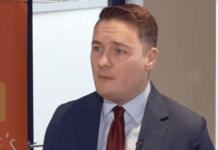
Federal student loans usually have more benefits and protections than private student loans. For example, federal student loans typically have fixed interest rates and the option for income-based repayment plans. With private student loans, many lenders don’t offer forbearance or deferment for financial hardship. This allows for private student loan defaults to be more common.
How Does Private Student Loan Default Work?
The timeframe and causes for sending your private student loans into default depend on the lender. To find out exactly what events will put your loan into default, it’s important to read your contract.
For federal student loans, a borrower isn’t considered to be in default until they are nine months behind on payments. Private student loans typically have a much shorter timeframe – it could be three months of missed payments for a borrower to be in default. However, some lenders are stricter than that, and someone might be considered in default if they miss one payment.
Other things that can cause a default include a cosigner entering bankruptcy, or you as the main borrower filing for bankruptcy or defaulting on another loan you’re responsible for.
In whatever manner it happens, though, being in default on a private student loan can be bad news for your credit and finances. If you’re in default on a private student loan, a lender will start to try to collect from you – and more.
What Happens When You Default on Private Student Loans?
The following are some of the steps lenders may take if someone is considered in default on their private student loan, and what options are available to borrowers.
The Lender Will Report Your Late Payments/Default to the Credit Reporting Agencies
Credit reports show not only the loans people have in their name but also whether or not they’re making on-time payments. If you default on student loans or even have late payments, it can significantly affect your credit score and credit history.
The Lender Can Seek Repayment From Any Cosigner
Many private student loans require cosigners because college students have little if any credit history. A lender can try and force cosigners to repay the loan, because that cosigner is considered another borrower, with the same responsibilities as the student borrower.
The Lender Could Demand Full Repayment
If a borrower is considered in default on a loan, the lender may demand immediate, full repayment. Some creditors may demand this after a person is only 30 days past due. The reason this can happen is that the borrower is considered to have violated the terms of the contract.
The Lender Could Send Your Account to a Collection Agency
Reporting the loan to a collections agency is often the first step lenders will make, and they will try to avoid going to court. A third-party debt collector will send you collection letters and call you, but the Fair Debt Collection Practices Act does prevent them from engaging in harassment, abusive, or deceptive practices.
The Lender Could Sue You and/or Your Cosigner for the Amount
A lender can sue both the borrower and the cosigner for student loans in default, and the worst thing to do is ignore the lawsuit. If you ignore a lawsuit, the lender can seek a judgment against you. The judgment means the lender can then take additional steps against you, including wage garnishment, freezing your bank accounts, and putting liens on any property you own. A judgment can last for 10 years, or sometimes even longer, and as that’s going on your debt continues to accumulate interest.
If you can’t settle the lawsuit, you may have to file for bankruptcy. That won’t eliminate student loans, but you won’t have other simultaneous debts to pay off. There are also repayment bankruptcy options where you can make monthly payments over a period of anywhere from three to five years.
The Lender Could Garnish Your Wages
In order for a lender to garnish your wages because of defaulting on a private student loan, they have to get a court order. The guidelines for obtaining this kind of court order vary depending on the state, and there are some states where wage garnishment isn’t allowed.
The Lender Could Seize Your Assets
For a lender to seize assets, they would first have to get a judgment against the borrower or cosigner. Seizable assets usually include financial levies on bank accounts and liens against property.
Lasting Effects of Private Student Loan Default
It’s nearly impossible to bankrupt out of student loan debt and private student loan forgiveness is also highly unlikely. And reaching a point where you’ve defaulted on your loans can affect your life for a decade or more. While the blemishes on your credit report go away after seven years, a judgment can go on for 10 years or more.
Can You Get Out of Private Student Loan Default?
Some lenders will allow you to make interest-only payments for a period of time. Other lenders may let you go with a forbearance option if you’re facing financial hardship, although interest continues to accrue while your loans are in forbearance. You may consider contacting your lender to see if you can negotiate a payment plan to bring the loan back to ‘current’ status.
Regardless of the specific route you take, being proactive can save you from long-term damage when you aren’t able to pay your private student loans.
Disclaimer: We at Prepare for Change (PFC) bring you information that is not offered by the mainstream news, and therefore may seem controversial. The opinions, views, statements, and/or information we present are not necessarily promoted, endorsed, espoused, or agreed to by Prepare for Change, its leadership Council, members, those who work with PFC, or those who read its content. However, they are hopefully provocative. Please use discernment! Use logical thinking, your own intuition and your own connection with Source, Spirit and Natural Laws to help you determine what is true and what is not. By sharing information and seeding dialogue, it is our goal to raise consciousness and awareness of higher truths to free us from enslavement of the matrix in this material realm.
 EN
EN FR
FR


























M, thank you for asking how my advice has worked for me. Ten years ago, I was brutally fired from my corporate healthcare job of 20 years. Looking back, being fired was the best thing that ever happened to me. I desperately wanted a simple life with enough money and no debt and free time (less stress). Although, I am an older highly educated woman, I still had no assets after working hard my entire life. I started gathering information. I gave up the fancy apartment and new leased cars for a tiny apartment and an older car, and I quit shopping at Whole Foods. I have $70,000 of Federal student loans.
On YouTube I watched Aaron Russo, America from Freedom to Fascism; Meet Your Strawman, and more recently Kenneth Storey: The Trump/Q Plan for the D33P Stat3, and studied websites like this one (PFC). Providence moves in to help when you take the path I did.
I stopped paying credit card debt. I wrote letters to the companies asking for the signed contract (template found on the internet) and told them that when that was provided I would be happy to continue paying on the debt. They never have the signed contract. I also warned them to correspond with me by USPS only, not by phone. They must comply, or they can be sued. No more phone calls. Most of the debt was not even reported to the credit bureaus. What was reported by this time is now gone, not that I even care.
I got creative, and became a caregiver for mobile elderly people. The pay is much less than a corporate job, but it is enough for me, and it is highly fulfilling. I am a private contractor. Based on information from Freedom to Fascism, I refuse to pay income tax and support war. My pay could never be garnished from a collection agency because I am paid directly from my clients.
Since my student loans were federal, I went ahead and signed up for an income driven repayment plan. My amount due is zero. I do not file a 1040, there is no law that says anyone has to. I do not have sufficient income to pay even one dollar to the federal lenders, even if I did file. I live on $25,000/year. That is considered poverty level; funny, I have never felt so rich. If the debt were private, I would have just stopped paying on it.
Also, one can get pretty good healthcare if your income is poverty level.
Some might think this is playing the system. The system has played us, so arm yourself with information and fight back. You have to be brave to do what I did, and like I said I did not have any assets to be taken away. Some young people are moving to EcoVillages, like the Dancing Rabbit in Missouri. Change is coming though, so please do hang on, and check out some of the YouTube videos I have watched in my awakening process.
The good idea of helping young people obtain an education has been perverted into a money-making scam for the benefit of lenders, for-profit colleges, and bloated bureaucracies at non-profit colleges.
Trump’s Secretary of Education, Betsy DeVos, made it one of her early priorities to remove the few protections that student borrowers had:
https://www.chicagotribune.com/business/ct-betsy-devos-student-loan-protections-20170411-story.html
Don’t worry about your student loans. Stop paying on them, and on your credit cards. Doesn’t matter if your credit score is ruined because the Quantum Financial System is in place, and all debt will vanish! Use the money instead for your two week emergency food supply for you and your pets. Financial reset is so very near. Honestly, I don’t know why this hopeless stuff is posted.
Mary – Please give us some more details on how that advice has worked out for you.
What a sad world. When a child pays and pays and pays to grow and become a good citizen.
That’s if they can at the end of their education make a living,
If not, they ought to join the army and fight someone else’s war.
Either way, they’ll die, broke.